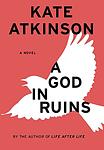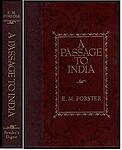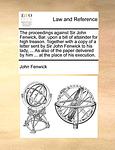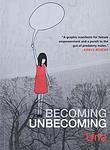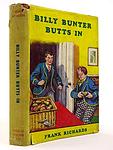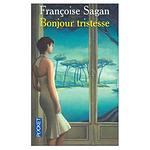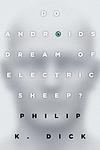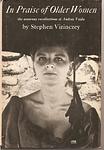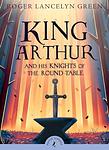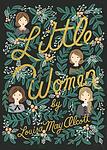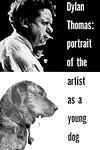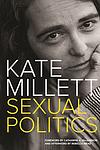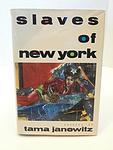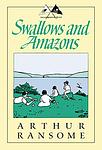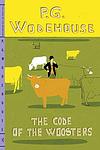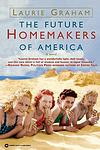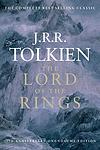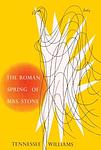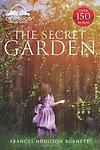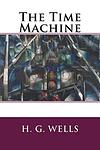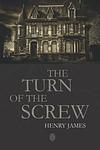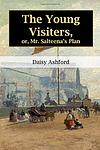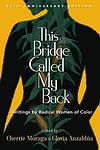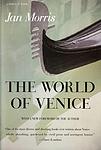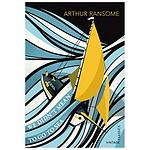A Hundred Novels to Change Your Life
This is one of the 284 lists we use to generate our main The Greatest Books list.
-
Jane Eyre by Charlotte Bronte
The novel follows the life of Jane Eyre, an orphan who is mistreated by her relatives and sent to a charity school. As she grows up, Jane becomes a governess at Thornfield Hall, where she falls in love with the brooding and mysterious Mr. Rochester. However, she soon learns of a dark secret in his past that threatens their future together. The story is a profound exploration of a woman's self-discovery and her struggle for independence and love in a rigid Victorian society.
-
To the Lighthouse by Virginia Woolf
This novel is a pioneering work of modernist literature that explores the Ramsay family's experiences at their summer home on the Isle of Skye in Scotland. The narrative is divided into three sections, focusing on a day in the family's life, a description of the house during their absence, and their return after ten years. The book is known for its stream of consciousness narrative technique and its exploration of topics such as the passage of time, the nature of art, and the female experience.
-
The Women's Room by Marilyn French
"The Women's Room" is a groundbreaking novel that explores the journey of a suburban housewife from a traditional, oppressive marriage to an awakening of self-discovery and feminism. After her divorce, the protagonist goes back to school, where she encounters a group of independent, intellectually stimulating women who challenge the societal norms of the time. The novel provides a stark portrayal of the struggles faced by women in the 1950s and 1960s, highlighting the need for gender equality and women's rights.
-
The Grapes of Wrath by John Steinbeck
The book follows the Joad family, Oklahoma farmers displaced from their land during the Great Depression. The family, alongside thousands of other "Okies," travel to California in search of work and a better life. Throughout their journey, they face numerous hardships and injustices, yet maintain their humanity through unity and shared sacrifice. The narrative explores themes of man's inhumanity to man, the dignity of wrath, and the power of family and friendship, offering a stark and moving portrayal of the harsh realities of American migrant laborers during the 1930s.
-
Vanity Fair by William Makepeace Thackeray
This classic novel follows the lives of two contrasting women, the cunning and ruthless Becky Sharp and the sweet and naive Amelia Sedley, against the backdrop of English society during the Napoleonic Wars. The book is a satirical exploration of the obsession with wealth, status, and social climbing, and the moral bankruptcy that can result from such pursuits. The narrative weaves an intricate tale of love, betrayal, and redemption, exposing the vanity and hypocrisy of high society.
-
One Hundred Years of Solitude by Gabriel Garcia Marquez
This novel is a multi-generational saga that focuses on the Buendía family, who founded the fictional town of Macondo. It explores themes of love, loss, family, and the cyclical nature of history. The story is filled with magical realism, blending the supernatural with the ordinary, as it chronicles the family's experiences, including civil war, marriages, births, and deaths. The book is renowned for its narrative style and its exploration of solitude, fate, and the inevitability of repetition in history.
-
A Christmas Carol by Charles Dickens
This classic tale follows a miserly old man named Ebenezer Scrooge who despises Christmas and all forms of happiness. On Christmas Eve, he is visited by the ghost of his former business partner and three spirits representing Christmases Past, Present, and Yet to Come. These apparitions take him on a journey that forces him to confront his selfish ways, leading him to a transformation where he becomes a kinder and more generous person, embodying the true spirit of Christmas.
-
A Clockwork Orange by Anthony Burgess
This novel follows the life of a violent young man named Alex, who is part of a youth subculture in a dystopian future England. Alex and his gang engage in a nightmarish spree of rape, assault, and robbery, until he is arrested and subjected to a psychological experiment by the government to "cure" him of his violent tendencies. The novel explores themes of free will, morality, and the nature of evil, while using a unique slang language invented by the author.
-
A God in Ruins by Kate Atkinson
"A God in Ruins" is a novel that tells the story of Teddy Todd, a World War II bomber pilot, and his life before, during, and after the war. The narrative alternates between different time periods, exploring Teddy's childhood, his experiences in the war, and his later life as a husband, father, and grandfather. The book delves deep into the effects of war, the passage of time, and the complexities of family relationships, offering a poignant exploration of a man's life and the historical events that shape it.
-
A Passage to India by E. M. Forster
The novel takes place in British-ruled India, where the cultural divide between the British and the Indians is explored. The story focuses on the experiences of an Indian Muslim, Dr. Aziz, and his interactions with an English woman, Miss Quested, and her elderly friend, Mrs. Moore. After an expedition to the Marabar Caves, Miss Quested accuses Dr. Aziz of assault, leading to a trial that deepens the racial tensions and prejudices between the colonizers and the colonized. The novel is a critique of British imperialism and a study of the cultural and racial misunderstandings and ill-will between the British and the Indian people.
-
A Place Of Execution by Val McDermid
In a small and close-knit English village, a young girl mysteriously disappears in 1963, leaving the community in shock and despair. Decades later, a journalist becomes fascinated with the case and begins to unravel the truth behind the girl's disappearance, uncovering dark secrets and hidden motives that have haunted the village for years. As the journalist digs deeper, she uncovers a web of deceit, betrayal, and tragedy, ultimately leading to a shocking revelation that will leave readers questioning the nature of justice and the lengths people will go to protect their secrets.
-
Alice's Adventures in Wonderland by Lewis Carroll
This novel follows the story of a young girl named Alice who falls down a rabbit hole into a fantastical world full of peculiar creatures and bizarre experiences. As she navigates through this strange land, she encounters a series of nonsensical events, including a tea party with a Mad Hatter, a pool of tears, and a trial over stolen tarts. The book is renowned for its playful use of language, logic, and its exploration of the boundaries of reality.
-
American Pastoral by Philip Roth
This novel tells the story of Seymour "Swede" Levov, a successful Jewish-American businessman and former high school athlete from Newark, New Jersey. Levov's happy and conventional upper middle class life is ruined by the domestic social and political turmoil of the 1960s during the presidency of Lyndon B. Johnson, which in the novel is seen through the eyes of the narrator, Nathan Zuckerman, a budding writer who idolizes the Levovs. The novel portrays the impact of this turmoil on Levov and his family, particularly his rebellious daughter who becomes involved in revolutionary political activities.
-
Becoming Unbecoming by Una
This graphic novel is a poignant exploration of gender violence, identity, and the journey of healing. It intertwines the author's personal narrative of growing up in the 1970s in Northern England with the historical backdrop of the Yorkshire Ripper, a notorious serial killer targeting women. As the author grapples with her own experiences of sexual abuse and societal pressures, the book delves into themes of misogyny, shame, and the societal tendency to blame victims rather than perpetrators. Through powerful illustrations and candid prose, it offers a deeply personal account of the struggle to overcome trauma and the cultural silence surrounding sexual violence.
-
Barchester Towers by Anthony Trollope
"Barchester Towers" is a satirical novel that explores the power struggles within the church and aristocracy of a fictional English cathedral town. The story centers around an ecclesiastical power struggle following the death of the Bishop of Barchester, with the bishop's son, Archdeacon Grantly, and a newly appointed bishop, Dr. Proudie, vying for control. The novel also follows the romantic endeavors of Eleanor Bold, a young widow who becomes the object of affection for multiple suitors. The narrative is filled with political maneuvering, social intrigue, and commentary on Victorian society.
-
Billy Bunter Butts In by Frank Richards
In this comedic installment from a classic British series, the rotund and often mischievous schoolboy finds himself embroiled in yet another series of escapades at Greyfriars School. Despite his notorious reputation for gluttony and laziness, the protagonist manages to stumble through a mix of misunderstandings and accidents that lead to both trouble and amusement. His attempts to shirk responsibility and snatch extra snacks are met with the usual mix of exasperation and humor by his peers and teachers, ensuring that the school's atmosphere is always lively and unpredictable with him around.
-
Bonjour Tristesse by Francoise Sagan
This novel centers around a 17-year-old girl living with her playboy father in the French Riviera. The pair lead a carefree, hedonistic lifestyle until the father decides to remarry, causing the protagonist to hatch a plan to prevent the marriage and return to their old way of life. The story explores themes of youth, love, and the struggle between desire and morality.
-
Cold Comfort Farm by Stella Gibbons
When a young, sophisticated woman is suddenly orphaned and left penniless, she decides to live with her eccentric relatives on their rundown farm. Using her urban sensibilities and wit, she sets about bringing order to the chaos and improving the lives of her relatives. Through her efforts, she manages to transform the gloomy, grim farm into a place of happiness and productivity. This novel is a hilarious parody of romantic, pastoral novels and is filled with eccentric characters and absurd situations.
-
Crime and Punishment by Fyodor Dostoevsky
A young, impoverished former student in Saint Petersburg, Russia, formulates a plan to kill an unscrupulous pawnbroker to redistribute her wealth among the needy. However, after carrying out the act, he is consumed by guilt and paranoia, leading to a psychological battle within himself. As he grapples with his actions, he also navigates complex relationships with a variety of characters, including a virtuous prostitute, his sister, and a relentless detective. The narrative explores themes of morality, redemption, and the psychological impacts of crime.
-
Cry, the Beloved Country by Alan Paton
"Cry, the Beloved Country" is a novel about a black Anglican priest from South Africa's rural Natal region who embarks on a journey to Johannesburg in search of his sister and son. The priest grapples with the racial injustice and social inequality of apartheid-era South Africa, while his son becomes involved in political activism and is wrongfully accused of a crime. The novel explores themes of love, fear, and social justice, while highlighting the destructive effects of apartheid on the human spirit and the South African landscape.
-
Disgrace by J M Coetzee
"Disgrace" is a novel that explores the life of a middle-aged professor in South Africa who is dismissed from his position after having an affair with a student. After losing his job, he moves to the countryside to live with his daughter, where they experience a violent attack that significantly alters their lives. The story delves into themes of post-apartheid South Africa, racial tension, sexual exploitation, and the struggle for personal redemption.
-
Do Androids Dream of Electric Sheep? by Philip K. Dick
Set in a post-apocalyptic world, the novel presents a future where Earth's life has been greatly damaged by a nuclear global war, leaving most species extinct. The remaining human population has been encouraged to emigrate to off-world colonies to preserve the human race. Those who remain on Earth are tasked with maintaining the ecological balance by owning and caring for animals, replacing extinct species with mechanical replicas when necessary. The story revolves around a bounty hunter, who is tasked with "retiring" rogue androids that pose a threat to humans, and his emotional and moral struggles as he goes about his work.
-
Don Quixote by Miguel de Cervantes
This classic novel follows the adventures of a man who, driven mad by reading too many chivalric romances, decides to become a knight-errant and roam the world righting wrongs under the name Don Quixote. Accompanied by his loyal squire, Sancho Panza, he battles windmills he believes to be giants and champions the virtuous lady Dulcinea, who is in reality a simple peasant girl. The book is a richly layered critique of the popular literature of Cervantes' time and a profound exploration of reality and illusion, madness and sanity.
-
Far from the Madding Crowd by Thomas Hardy
Set in rural England, the novel follows the story of Bathsheba Everdene, a young and independent woman who inherits her uncle's farm. She becomes the object of affection for three very different men: Gabriel Oak, a sheep farmer; Sergeant Frank Troy, a reckless soldier; and William Boldwood, a prosperous and mature bachelor. The narrative explores love, honor, and betrayal against a backdrop of the changing social and economic landscape of 19th century England.
-
Frankenstein by Mary Shelley
This classic novel tells the story of a young scientist who creates a grotesque but sentient creature in an unorthodox scientific experiment. The scientist, horrified by his creation, abandons it, leading the creature to seek revenge. The novel explores themes of ambition, responsibility, guilt, and the potential consequences of playing God.
-
Giovanni's Room by James Baldwin
The novel explores themes of identity, sexuality, and societal norms in mid-20th century Paris. The protagonist, an American man, grapples with his homosexual identity while engaged to a woman. His life takes a turn when he becomes involved with an Italian bartender, leading to a tumultuous relationship filled with passion, guilt, and self-loathing. The story is a poignant examination of the human struggle for acceptance and the destructive consequences of denying one's true self.
-
Great Expectations by Charles Dickens
A young orphan boy, living with his cruel older sister and her kind blacksmith husband, has an encounter with an escaped convict that changes his life. Later, he becomes the protégé of a wealthy but reclusive woman and falls in love with her adopted daughter. He then learns that an anonymous benefactor has left him a fortune, leading him to believe that his benefactor is the reclusive woman and that she intends for him to marry her adopted daughter. He moves to London to become a gentleman, but his great expectations are ultimately shattered when he learns the true identity of his benefactor and the reality of his love interest.
-
Heart of Darkness by Joseph Conrad
This classic novel follows the journey of a seaman who travels up the Congo River into the African interior to meet a mysterious ivory trader. Throughout his journey, he encounters the harsh realities of imperialism, the brutal treatment of native Africans, and the depths of human cruelty and madness. The protagonist's journey into the 'heart of darkness' serves as both a physical exploration of the African continent and a metaphorical exploration into the depths of human nature.
-
In Praise Of Older Women by Stephen Vizinczey
The book is a candid and provocative exploration of the romantic and sexual relationships of a young man, particularly with older, more experienced women. Through a series of intimate encounters and personal reflections, the protagonist embarks on a journey of emotional and sensual education. Set against the backdrop of mid-20th century Europe, the narrative delves into themes of love, passion, and the complexity of human connections, challenging societal norms and offering a fresh perspective on the dynamics between the sexes and the transformative power of relationships.
-
King Arthur And His Knights Of The Round Table by Roger Lancelyn Green
This book is a retelling of the classic Arthurian legends, weaving together the tales of the legendary King Arthur and his noble knights. It chronicles Arthur's ascent to the throne after pulling the enchanted sword Excalibur from a stone, the establishment of the Round Table, and the various quests undertaken by his knights, including the search for the Holy Grail. The narrative also delves into the personal stories of key figures such as Sir Lancelot, Guinevere, and Merlin the wizard, exploring themes of chivalry, honor, and betrayal. Rich in medieval mythology and adventure, the book captures the imagination with its depiction of a romanticized, yet perilous, world of knights and their code of ethics.
-
The Life of Samuel Johnson by James Boswell
"The Life of Samuel Johnson" is a comprehensive biography that chronicles the life of one of the most prominent English literary figures of the 18th century. The book provides an in-depth account of Samuel Johnson's life, his literary works, and his significant contribution to English literature. It also offers a detailed portrait of his personality, his relationships, his struggles with depression and illness, and his views on a variety of subjects. The book is as much a biography of Johnson as it is a portrayal of 18th-century England.
-
Little Women by Louisa May Alcott
This classic novel follows the lives of the four March sisters - Meg, Jo, Beth, and Amy - as they navigate the challenges and joys of adolescence and adulthood in 19th century New England. As they grow, they grapple with issues of poverty, gender roles, love, and personal identity, each in her own unique way. The story is a testament to the power of family, sisterhood, and female resilience in a time of societal constraints.
-
Lucky Jim by Kingsley Amis
"Lucky Jim" is a comic novel that follows the life of Jim Dixon, a young and disillusioned lecturer at a provincial British university. Struggling with his job and his pretentious boss, Dixon navigates through a series of humorous and often absurd situations, including a disastrous public lecture and a chaotic weekend at his boss's house. The novel satirizes the snobbishness and hypocrisy of the academic world, and explores themes of class, ambition, and the struggle to find personal authenticity in a conformist society.
-
Middlemarch by George Eliot
Set in the fictitious English town of Middlemarch during the early 19th century, the novel explores the complex web of relationships in a close-knit society. It follows the lives of several characters, primarily Dorothea Brooke, a young woman of idealistic fervor, and Tertius Lydgate, an ambitious young doctor, who both grapple with societal expectations, personal desires, and moral dilemmas. Their stories intertwine with a rich tapestry of other townsfolk, reflecting themes of love, marriage, ambition, and reform, making a profound commentary on the human condition.
-
Moby Dick by Herman Melville
The novel is a detailed narrative of a vengeful sea captain's obsessive quest to hunt down a giant white sperm whale that bit off his leg. The captain's relentless pursuit, despite the warnings and concerns of his crew, leads them on a dangerous journey across the seas. The story is a complex exploration of good and evil, obsession, and the nature of reality, filled with rich descriptions of whaling and the sea.
-
Moonfleet by J. Meade Faulkner
"Moonfleet" is an adventure novel set in the 18th century in a small English coastal village. The story revolves around a young orphan named John Trenchard, who becomes entangled in the world of smuggling and treasure hunting. After discovering a cryptic message left by the deceased pirate Blackbeard, John and the village's taciturn but kind-hearted smuggler, Elzevir Block, embark on a perilous quest for a fabled diamond. Their journey is fraught with danger, betrayal, and moral dilemmas, leading to a gripping tale of friendship, loyalty, and the pursuit of fortune, all while evading the law and the harsh realities of their time.
-
Mrs. Dalloway by Virginia Woolf
The novel chronicles a day in the life of Clarissa Dalloway, a high-society woman in post-World War I England, as she prepares for a party she is hosting that evening. Throughout the day, she encounters various characters from her past, including a former suitor and a shell-shocked war veteran. The narrative jumps back and forth in time and in and out of different characters' minds, exploring themes of mental illness, existentialism, and the nature of time.
-
My Cousin Rachel by Daphne du Maurier
The novel revolves around a young Englishman who seeks the truth about his cousin's mysterious widow, suspecting her of foul play in his cousin's untimely death. As he becomes entangled in the widow's seductive charms, his initial suspicions transform into a complex blend of attraction, jealousy, and uncertainty. Set against the backdrop of a grand Cornish estate, the story delves into themes of obsession, inheritance, and the blurred lines between passion and poison, leaving readers to ponder the true nature of the enigmatic woman at its center.
-
Naples 44 by Norman Lewis
This book is a vivid personal diary of a British intelligence officer stationed in Naples during the aftermath of the city's liberation in World War II. The narrative captures the chaotic and harrowing conditions of a city under military occupation, as the author meticulously documents the daily struggles of the local population amidst ruins, as well as the rampant corruption, black market dealings, and the complex interplay of cultures brought together by the war. His keen observations offer a poignant and deeply human portrayal of the resilience of civilians and soldiers alike, trying to navigate the moral ambiguities and the physical devastation of wartime Naples.
-
Nineteen Eighty Four by George Orwell
Set in a dystopian future, the novel presents a society under the total control of a totalitarian regime, led by the omnipresent Big Brother. The protagonist, a low-ranking member of 'the Party', begins to question the regime and falls in love with a woman, an act of rebellion in a world where independent thought, dissent, and love are prohibited. The novel explores themes of surveillance, censorship, and the manipulation of truth.
-
Nine Unlikely Tales by E Nesbit
"Nine Unlikely Tales" is a collection of whimsical and fantastical short stories for children that explore a variety of imaginative scenarios and moral lessons. The tales feature a cast of unlikely characters, including toys coming to life, magical beings, and children who find themselves in extraordinary situations. Each story is imbued with a sense of adventure and the unexpected, as the protagonists navigate their unique challenges, often learning valuable life lessons along the way. The author's narrative style combines humor, wit, and a touch of the absurd, making the stories both entertaining and thought-provoking for young readers.
-
Oliver Cromwell: An Adventure From History by L. du Garde Peach
This children's book provides an engaging overview of the life and times of one of England's most notable historical figures, a military and political leader who rose to prominence during the tumultuous period of the English Civil War. It charts his journey from a modest upbringing to becoming the Lord Protector of the Commonwealth of England, Scotland, and Ireland, offering insights into his role in the execution of King Charles I and his subsequent efforts to impose Puritan morality. The narrative captures the complexities of his dictatorship, his military campaigns in Ireland and Scotland, and his lasting impact on British history, all while presenting these events in a manner accessible to younger readers.
-
Portnoy's Complaint by Philip Roth
The novel is a first-person narrative, a monologue by a young Jewish man, Alexander Portnoy, who is speaking to his psychoanalyst. He shares his struggles with his identity as a Jewish man in America, his sexual fantasies and frustrations, his complex relationship with his overbearing mother, and his experiences of guilt and shame. The book uses humor and frank language to explore themes of identity, sexuality, and the Jewish experience in America.
-
Pornography by Andrea Dworkin
The book is a radical feminist examination of the pornography industry and its effects on society. The author argues that pornography dehumanizes women by objectifying them and glorifying male dominance and violence. She delves into the ways in which porn perpetuates misogyny and contributes to the widespread culture of sexual violence against women. The work is a provocative critique that challenges the notion of pornography as a benign form of adult entertainment, instead positioning it as a fundamental issue of women's rights and social justice.
-
Portrait Of The Artist As A Young Dog by Dylan Thomas
This book is a collection of semi-autobiographical stories that delve into the early life and formative years of a young Welsh poet. Through vivid, evocative prose, the reader is taken on a journey through the author's childhood and adolescence in Swansea, Wales, during the 1920s and 1930s. The stories are rich with the sensory experiences of youth, capturing moments of joy, confusion, and the pains of growing up. The narrative explores universal themes of nostalgia, the loss of innocence, and the artistic awakening of a young man with a keen eye for the beauty and absurdity of the world around him.
-
Pride and Prejudice by Jane Austen
Set in early 19th-century England, this classic novel revolves around the lives of the Bennet family, particularly the five unmarried daughters. The narrative explores themes of manners, upbringing, morality, education, and marriage within the society of the landed gentry. It follows the romantic entanglements of Elizabeth Bennet, the second eldest daughter, who is intelligent, lively, and quick-witted, and her tumultuous relationship with the proud, wealthy, and seemingly aloof Mr. Darcy. Their story unfolds as they navigate societal expectations, personal misunderstandings, and their own pride and prejudice.
-
Rubyfruit Jungle by Rita Mae Brown
"Rubyfruit Jungle" is a coming-of-age novel that explores the life of a young girl growing up in poverty in the American South, who realizes she is a lesbian. The protagonist is a fiercely independent and ambitious woman who overcomes societal norms and prejudices to pursue her dreams. The narrative provides an honest and humorous look at sexuality and identity, while also addressing the challenges faced by the LGBTQ+ community.
-
Sexual Politics by Kate Millett
The book in question is a seminal text in feminist literature that explores the dynamics of power in relation to gender and sexuality. It critically examines the ways in which patriarchy is upheld through cultural and literary norms, dissecting classic works of literature and contemporary cultural artifacts to expose the underlying misogyny. The author argues that sex is a political category and power is exercised over women through sexual politics, which perpetuate male dominance and female subjugation. By challenging the accepted social constructs of the time, the book contributed significantly to the second wave of feminism and sparked widespread debate about the roles and representations of men and women in society.
-
Slaves Of New York by Tama Janowitz
The book is a collection of interlinked stories that delve into the lives of young, eccentric artists and their struggle for survival and identity in the gritty urban landscape of 1980s New York City. The narrative follows a diverse group of characters, including an aspiring jewelry designer navigating the complexities of her relationship with a self-absorbed artist, as they grapple with poverty, ambition, and the search for artistic recognition. Through a series of vignettes, the book paints a vivid portrait of a subculture defined by its members' vulnerability and resilience, capturing the essence of an era and its bohemian denizens.
-
Swallows and Amazons by Arthur Ransome
This classic children's novel follows the summer adventures of the Walker and Blackett children as they camp, sail, and explore the Lake District of England. The Walker siblings, who fancy themselves as the crew of the ship Swallow, meet the Blackett sisters, self-proclaimed pirates of the ship Amazon. The two groups form a fast friendship and embark on a series of exciting escapades, including a treasure hunt, a battle for control of an island, and a run-in with a mysterious man they suspect is a criminal. The story is a celebration of the outdoors, imagination, and the joys of childhood.
-
Tender Is the Night by F. Scott Fitzgerald
Set in the French Riviera in the 1920s, the novel traces the tragic tale of a young psychiatrist, his beautiful wife, and the drama that unfolds amongst their circle of wealthy expatriate friends. The psychiatrist's wife suffers from mental illness, which leads to his own downfall as he struggles to keep his marriage intact and maintain his professional reputation. The narrative explores themes of wealth, love, desire, and the destructive power of obsession, painting a haunting portrait of the dark side of the glamorous Jazz Age.
-
The Book Thief by Markus Zusak
Set in Nazi Germany during World War II, the novel follows the story of a young girl who finds solace in stealing books and sharing them with others. In the midst of the horrors of war, she forms a bond with a Jewish man her foster parents are hiding in their basement. The story is narrated by Death, offering a unique perspective on the atrocities and small acts of kindness during this period. The girl's love for books becomes a metaphor for resistance against the oppressive regime.
-
The Canterbury Tales by Geoffrey Chaucer
The Canterbury Tales is a collection of 24 stories that follows a group of pilgrims traveling from London to Canterbury to visit the shrine of Saint Thomas Becket. Told in Middle English, the tales are narrated by a diverse group of pilgrims, including a knight, a miller, a reeve, and a pardoner, who share their stories to pass the time during their journey. The tales, which range from chivalrous romances to bawdy fabliaux, provide a colorful, satirical, and critical portrayal of 14th century English society.
-
The Catcher in the Rye by J. D. Salinger
The novel follows the story of a teenager named Holden Caulfield, who has just been expelled from his prep school. The narrative unfolds over the course of three days, during which Holden experiences various forms of alienation and his mental state continues to unravel. He criticizes the adult world as "phony" and struggles with his own transition into adulthood. The book is a profound exploration of teenage rebellion, alienation, and the loss of innocence.
-
The Code of the Woosters by P. G. Wodehouse
In this comedic British novel, a wealthy and idle young man and his valet navigate a series of mishaps and misunderstandings involving a cow-creamer, an antique book, a policeman's helmet, and a pair of star-crossed lovers. Throughout the story, the young man's valet employs his intelligence and cunning to rescue his employer from various predicaments, often involving troublesome relatives and romantic entanglements. The story is a classic example of 20th-century humor and satire, filled with witty dialogue and absurd situations.
-
The Color Purple by Alice Walker
Set in the early 20th century, the novel is an epistolary tale of a young African-American woman named Celie, living in the South. She faces constant abuse and hardship, first from her father and then from her husband. The story unfolds through her letters written to God and her sister Nettie, revealing her emotional journey from oppression to self-discovery and independence, aided by her relationships with strong women around her. The narrative explores themes of racism, sexism, domestic violence, and the power of sisterhood and love.
-
The Country Girls by Edna O'Brien
"The Country Girls" is a coming-of-age novel about two young Irish women, Kate and Baba, who grow up in the restrictive and repressed atmosphere of rural Ireland in the 1950s. The narrative follows their journey from a convent school to the bright lights of Dublin, where they seek love and adventure. The novel explores themes of female friendship, sexual awakening, and the struggle for personal freedom against the backdrop of a conservative society.
-
The Decline and Fall of the Roman Empire by Edward Gibbon
This historical work provides a comprehensive perspective on the fall of the Roman Empire, examining its decline from the height of its power in the second century A.D. through the fall of Constantinople in 1453. The author meticulously chronicles the empire's deterioration due to a variety of factors, including moral decay, economic crisis, military incompetence, barbarian invasions, and internal power struggles, while also offering insightful commentary on the broader implications for Western civilization.
-
The End of the Affair by Graham Greene
Set in London during and just after World War II, the novel revolves around a love affair between Maurice Bendrix, a writer, and Sarah Miles, the wife of a civil servant. The story is narrated by Bendrix, who is obsessed with Sarah and hires a private investigator to follow her when he suspects she's having another affair. The novel explores themes of love, hate, and the existence of God, with Sarah's faith playing a significant role in the narrative.
-
The Future Homemakers Of America by Laurie Graham
The novel centers on a group of American military wives stationed with their husbands at an Air Force base in England during the 1950s. It follows their lives, friendships, and the challenges they face as they navigate cultural differences, personal dreams, and the shifting social landscape of the 20th century. Despite the varied paths their lives take over the years, the women share a bond that endures through love affairs, family strife, and societal changes, capturing the essence of an era and the enduring power of friendship.
-
The Handmaid's Tale by Margaret Atwood
Set in a dystopian future, this novel presents a society where women are stripped of their rights and are classified into various roles based on their fertility and societal status. The protagonist is a handmaid, a class of women used solely for their reproductive capabilities by the ruling class. The story is a chilling exploration of the extreme end of misogyny, where women are reduced to their biological functions, and a critique of religious fundamentalism.
-
The Heart of the Matter by Graham Greene
The novel follows the story of a British colonial police officer stationed in Sierra Leone during World War II. He is an honest and diligent man but finds himself in a moral crisis when he is torn between his duty and his love for another woman. He is caught in a spiral of deceit, corruption, and betrayal that leads to his tragic end. The narrative delves into themes of guilt, faith, betrayal, and moral paradoxes.
-
The Hound of the Baskervilles by Arthur Conan Doyle
This classic mystery novel follows a detective and his partner as they investigate a supernatural hound that has been haunting the Baskerville family for generations, supposedly causing the death of the recent family head. As the pair navigate the eerie moors surrounding the Baskerville estate, they unravel a plot of deception and murder, all while trying to protect the new heir from the same grisly fate. The story is a thrilling blend of mystery, suspense, and horror.
-
The Hitchhiker's Guide to the Galaxy by Douglas Adams
This comedic science fiction novel follows the intergalactic adventures of an unwitting human, Arthur Dent, who is rescued just before Earth's destruction by his friend Ford Prefect, a researcher for a galactic travel guide. Together, they hitch a ride on a stolen spaceship, encountering a range of bizarre characters, including a depressed robot and a two-headed ex-president of the galaxy. Through a series of satirical and absurd escapades, the book explores themes of existentialism, bureaucracy, and the absurdity of life, all while poking fun at the science fiction genre and offering witty commentary on the human condition.
-
The Intellectuals And The Masses by John Carey
This book presents a critical examination of the attitudes of early 20th-century intellectuals towards the masses, exploring the disdain and fear that writers and thinkers of the time harbored against the growing literacy and political empowerment of the working class. The author scrutinizes the elitist views and often eugenic arguments that were used to justify the exclusion of the broader population from cultural and intellectual life. By delving into the works and personal correspondences of prominent figures, the text reveals a landscape of intellectual snobbery and challenges the romantic idealization of literary giants by exposing their contempt for the 'masses' they often deemed inferior.
-
The Last Battle: The Chronicles of Narnia by C. S. Lewis
In the final installment of the series, Narnia faces its darkest hour. A false Aslan is commanding everyone to work tirelessly for the cruel Calormenes. Many Narnians are deceived by this false god and his prophet, an ape. However, a small band of loyal Narnians, led by King Tirian, fights back against the invaders. The friends of Narnia, children from another world, are summoned once again to help in this last battle. The fate of Narnia hangs in the balance and the final battle between good and evil determines the future of the magical land.
-
The Life And Loves Of A She Devil by Fay Weldon
The novel follows the story of a scorned wife who embarks on a transformative journey of revenge against her adulterous husband and his mistress. After being belittled for her appearance and discarded for a more beautiful woman, she decides to reinvent herself completely, both physically and socially, to exact retribution. Her quest for vengeance leads her down a dark path where she manipulates and destroys the lives of those who wronged her. As she assumes control of her destiny, the protagonist challenges societal expectations of femininity and power, ultimately questioning the true nature of identity and the cost of her unyielding pursuit of justice.
-
The Lord of the Rings by J. R. R. Tolkien
This epic high-fantasy novel centers around a modest hobbit who is entrusted with the task of destroying a powerful ring that could enable the dark lord to conquer the world. Accompanied by a diverse group of companions, the hobbit embarks on a perilous journey across Middle-earth, battling evil forces and facing numerous challenges. The narrative, rich in mythology and complex themes of good versus evil, friendship, and heroism, has had a profound influence on the fantasy genre.
-
The Lover by Marguerite Duras
"The Lover" is a poignant exploration of forbidden love, power dynamics, and colonialism. Set in 1930s French Indochina, it tells the story of a tumultuous and passionate affair between a 15-year-old French girl and her wealthy, older Chinese lover. The narrative delves into the complexities of their relationship, the societal norms they defy, and the inevitable heartbreak that follows. The protagonist's struggle with her family's poverty and her mother's mental instability further complicates the story, making it a compelling exploration of love, desire, and societal constraints.
-
The Man Who Would Be King by Rudyard Kipling
This novella follows the journey of two British adventurers in British India who become kings of a remote part of Afghanistan. After persuading local tribes to follow them through a mix of bravado and technological superiority, their rule is initially successful. However, their ambition leads to overreach when one of them decides to take a wife, breaking a local religious taboo. Their once-loyal subjects turn against them, leading to a dramatic and tragic conclusion that serves as a cautionary tale about the dangers of imperialism and the limits of hubris.
-
The Master and Margarita by Mikhail Bulgakov
This novel is a complex narrative that weaves together three distinct yet intertwined stories. The first story is set in 1930s Moscow and follows the devil and his entourage as they wreak havoc on the city's literary elite. The second story is a historical narrative about Pontius Pilate and his role in the crucifixion of Jesus Christ. The third story is a love story between the titular Master, a writer who has been driven to madness by the criticism of his work, and his devoted lover, Margarita. The novel is a satirical critique of Soviet society, particularly the literary establishment, and its treatment of artists. It also explores themes of love, sacrifice, and the nature of good and evil.
-
The Mayor of Casterbridge by Thomas Hardy
The Mayor of Casterbridge is a tragic novel set in the fictional town of Casterbridge, based on Dorchester in the English county of Dorset. The story follows the life of Michael Henchard, a skilled hay-trusser who, in a fit of drunken anger, sells his wife and daughter at a fair. When he sobers up, he is filled with regret and swears off alcohol for 21 years. He works hard and eventually becomes a successful businessman and the mayor of Casterbridge. However, his past returns to haunt him when his wife and daughter come back into his life, leading to a series of events that result in his downfall.
-
The Mill on the Floss by George Eliot
"The Mill on the Floss" is a novel that explores the lives of siblings Tom and Maggie Tulliver, who grow up at Dorlcote Mill on the River Floss. The book delves into their experiences in the rural society of the time, their complex relationship, and the choices they make in adulthood. The story is marked by themes of love, betrayal, societal expectations, and the struggle between individual desires and family obligations. The tragic ending underscores the consequences of societal norms and the struggle against them.
-
The Old Wives' Tale by Arnold Bennett
This novel explores the lives of two sisters, Constance and Sophia Baines, who are brought up in a small town drapery shop in the mid-19th century. Constance remains in their hometown, marries and leads a relatively uneventful life, while Sophia elopes to Paris with a traveling salesman, living through the Siege of Paris and the Franco-Prussian War. The book contrasts the sisters' different experiences and how their choices shape their lives, ultimately reuniting them in their old age.
-
The Overstory by Richard Powers
The Overstory is a sweeping, impassioned work of activism and resistance that is also a stunning evocation of the natural world. The novel tells the intertwined tales of nine different people who are drawn into the last standing few acres of virgin forest in North America. From a young artist who inherits a hundred years of photographic portraits, all of the same doomed American chestnut, to a hard-partying undergraduate in the late 1980s electrocuted by a streetlight, each character's story adds another layer of depth to the narrative. Their lives slowly merge with each other and the fate of the trees, showing the interconnectedness of life, human and otherwise.
-
The Pursuit Of Love by Nancy Mitford
The Pursuit of Love is a semi-autobiographical novel that follows the romantic escapades of the eccentric and aristocratic Radlett family, primarily through the eyes of cousin Fanny. The story centers on Linda, the most beautiful and free-spirited of the Radlett daughters, who embarks on a journey of self-discovery through her various relationships and marriages. The novel explores themes of love, marriage, and the societal expectations of women during the interwar period in England.
-
The Return of the Native by Thomas Hardy
This classic novel is set in the rustic rural backdrop of Egdon Heath and revolves around the life of Clym Yeobright, a successful diamond merchant who returns to his native land from Paris. His return sparks a chain of events involving love, ambition, betrayal, and tragedy. His love interest, Eustacia Vye, dreams of escaping the monotonous rural life, while his mother disapproves of their relationship. The novel explores the themes of love, fate, chance, and the clash between individuals' aspirations and societal expectations.
-
The Roman Spring Of Mrs. Stone by Tennessee Williams
The novel explores the emotional and psychological journey of a wealthy and recently widowed American actress who has retired to Rome. As she grapples with the fading allure of her beauty and career, she becomes involved with a young Italian man, who is revealed to be a gigolo. Their complex relationship is further complicated by the manipulative Contessa, who facilitates these liaisons. The story delves into themes of aging, desire, and the transactional nature of relationships, set against the backdrop of the evocative and decaying grandeur of post-war Rome.
-
The Secret Garden by Frances Hodgson Burnett
A young, spoiled and unloved girl is sent to live with her reclusive uncle in a large, lonely house after the death of her parents. Through the discovery and cultivation of a hidden, neglected garden, she befriends a local boy and her sickly cousin, and the three children find healing and transformation through their friendship and the magic of the garden.
-
The Spy Who Came in From the Cold by John le Carré
This novel is a fascinating tale of espionage during the Cold War, centered around a British intelligence officer who is seemingly ready to end his spy career. However, he is given one last mission before his retirement: to bring down the head of East German Intelligence. As he navigates the dangerous world of spies and double agents, he is forced to confront his own past and the sacrifices he has made for his country. The story is a complex exploration of morality, loyalty, and the personal cost of political conflict.
-
The Sun Also Rises by Ernest Hemingway
The novel is a poignant tale set in the 1920s post-World War I era, focusing on a group of American and British expatriates living in Paris who travel to Pamplona, Spain for the annual Running of the Bulls. The story explores themes of disillusionment, identity, and the Lost Generation, with the protagonist, a war veteran, grappling with impotence caused by a war injury. The narrative is steeped in the disillusionment and existential crisis experienced by many in the aftermath of the war, and the reckless hedonism of the era is portrayed through the characters' aimless wanderings and excessive drinking.
-
The Time Machine by H. G. Wells
A Victorian-era scientist invents a machine that allows him to travel through time. He first journeys to the year 802,701 A.D., where he encounters the Eloi, a society of small, elegant, childlike adults who live in harmony but lack curiosity and drive. He later discovers the Morlocks, a nocturnal, subterranean species who prey on the Eloi. After rescuing an Eloi named Weena, the protagonist loses his time machine and must devise a plan to recover it and return to his own time, all while exploring the social and evolutionary implications of the two distinct societies.
-
The Turn of the Screw by Henry James
A young governess is hired to care for two children at a remote English estate. However, she soon becomes convinced that the grounds are haunted by two former employees who have taken control of the children. As she fights to free the children from these apparitions, the line between reality and her own fears becomes increasingly blurred, leading to a chilling and ambiguous conclusion.
-
The Way We Live Now by Anthony Trollope
The book is a satirical analysis of the moral corruption in London during the 1870s. It centers around Augustus Melmotte, a fraudulent financier, who moves his family to London in an attempt to climb the social ladder. His daughter, Marie, falls in love with Sir Felix Carbury, a penniless playboy, while his wife is desperate to be accepted into London society. The book explores themes of wealth, power, love, and greed, and is a biting critique of the era's obsession with status and money.
-
The Young Visiters by Daisy Ashford
The book is a charming and whimsically written tale about the social adventures of a naive but ambitious nine-year-old girl in Victorian England. Penned by a young author herself, the novel follows the protagonist's infatuation with a much older man, her attempts to navigate the complexities of adult society, and her desire to attain a sense of belonging and love. The story is notable for its innocent perspective on adult behaviors and its unpolished, yet endearing narrative style, which captures the imaginative and unfiltered voice of childhood. Despite its apparent simplicity, the book subtly parodies the manners and mores of the upper classes, offering a unique and humorous window into the world as seen through the eyes of a child.
-
This Bridge Called My Back by Cherríe Moraga, Gloria Anzaldúa
This seminal anthology is a groundbreaking collection of essays, personal reflections, poetry, and critical analysis from a diverse group of women of color. It explores the complexities of their intersectional identities, focusing on the challenges and experiences they face due to their race, gender, class, and sexuality. The work serves as a foundational text in feminist theory, providing a platform for voices that had been marginalized within the feminist movement. It delves into themes of social justice, cultural identity, and political activism, calling for solidarity and empowerment among women of color as they navigate the overlapping oppressions of a patriarchal and racist society.
-
Three Men in a Boat by Jerome K. Jerome
Three Men in a Boat is a comedic account of a two-week boating holiday on the Thames River from Kingston upon Thames to Oxford and back to Kingston. The story follows three friends and a dog who decide to take a trip to cure their hypochondriac symptoms. The journey is filled with humorous incidents, historical digressions, and comical misunderstandings. Despite their initial intentions, the trio's holiday turns into a series of misadventures, providing a light-hearted commentary on the English upper-middle class at the end of the 19th century.
-
To Kill a Mockingbird by Harper Lee
Set in the racially charged South during the Depression, the novel follows a young girl and her older brother as they navigate their small town's societal norms and prejudices. Their father, a lawyer, is appointed to defend a black man falsely accused of raping a white woman, forcing the children to confront the harsh realities of racism and injustice. The story explores themes of morality, innocence, and the loss of innocence through the eyes of the young protagonists.
-
Treasure Island by Robert Louis Stevenson
This classic adventure novel tells the story of young Jim Hawkins, who stumbles upon a treasure map and embarks on a perilous journey to find the buried treasure. Along the way, he encounters a host of memorable characters, including the cunning and treacherous Long John Silver. The narrative is filled with action, intrigue, and suspense, as Hawkins and his companions face pirates, mutiny, and other dangers in their quest for the hidden treasure.
-
Venice by Jan Morris
This book provides an in-depth exploration of the city of Venice, delving into its history, culture, architecture, and its unique geographical attributes. It paints a vivid picture of the city in its glory days, as well as its present state, with all its beauty and decay. The author's personal experiences and observations are woven into the narrative, offering readers an intimate and engaging tour of the city. The book also discusses the city's influence on art, literature, and music, and its enduring allure for travelers from around the world.
-
Waiting for the Barbarians by J M Coetzee
The novel is set in a small frontier town of an unnamed empire, where the magistrate lives a life of civil service and relative peace. His world is disrupted when the Empire declares a state of emergency due to rumors of barbarian uprising. The magistrate becomes a critic of the Empire's brutal and inhumane methods of dealing with the perceived threat, which leads to his arrest and torture. As he tries to understand his role in the vast political machinery, he also grapples with questions of power, justice, and humanity.
-
We Didn't Mean To Go To Sea by Arthur Ransome
In this adventurous tale, four young siblings find themselves unexpectedly cast out to sea when their planned sailing excursion in a borrowed boat takes a dramatic turn. Initially setting out for a simple exploration of the estuary, a thick fog and a series of mishaps lead them into the open waters of the North Sea. With no way to return and a sleeping pilot aboard, the children must muster all their courage and sailing knowledge to navigate the treacherous waters, facing the challenges of weather, navigation, and their own fears, as they endeavor to find their way safely back to shore. Their journey becomes not only a test of their physical abilities but a transformative experience that teaches them the value of resilience, responsibility, and the deep bonds of siblinghood.
-
Wuthering Heights by Emily Brontë
This classic novel is a tale of love, revenge and social class set in the Yorkshire moors. It revolves around the intense, complex relationship between Catherine Earnshaw and Heathcliff, an orphan adopted by Catherine's father. Despite their deep affection for each other, Catherine marries Edgar Linton, a wealthy neighbor, leading Heathcliff to seek revenge on the two families. The story unfolds over two generations, reflecting the consequences of their choices and the destructive power of obsessive love.
-
The Lovely Bones by Alice Sebold
A teenage girl is brutally murdered in her small town, and from her new home in heaven, she watches over her family and friends as they struggle to cope with her loss. She also keeps an eye on her killer, hoping that he will eventually be brought to justice. Through her observations, she explores the complexities of human relationships, the ripple effects of her death, and the concept of moving on while still holding onto memories.
-
The Mandarins by Simone de Beauvoir
"The Mandarins" is a novel that explores the personal and political lives of a group of intellectuals in post-World War II France. The narrative delves into their struggles with ethical dilemmas, political ideologies, and personal relationships in a rapidly changing world. The book is known for its exploration of existentialism and feminism, providing a vivid portrayal of the human condition and the complexities of freedom.
The Daily Mail, 95 Books
The Daily Mail's response to the BBC's list of 100 novels that 'shaped our world' is sharply critical, pointing out significant omissions and questioning the selection's focus on political correctness over literary merit. The critique highlights the absence of literary giants such as Rudyard Kipling, Thomas Hardy, and Salman Rushdie's "The Satanic Verses," suggesting the list leans towards appealing to younger audiences at the expense of timeless classics. It also criticizes the BBC's thematic categories, like 'Identity' and 'Politics, Power and Protest,' for potentially diluting the complex essence of literature.
The article calls out specific inclusions and exclusions as misjudgments, arguing for a list that better represents enduring works that have truly impacted generations of readers. In an alternative approach, the Daily Mail invites its writers to share their personal, impactful reads, emphasizing the subjective nature of literary value and the lasting significance of books that resonate on a deeply personal level. This serves as a reminder of the power of literature to influence individually and collectively, beyond contemporary trends.
Added 2 months ago.
This list has a weight of 84%. To learn more about what this means please visit the Rankings page.
Here is a list of what is decreasing the importance of this list:
- Voters: are mostly from a single country/location
- List: criteria is not just "best/favorite"
If you think this is incorrect please e-mail us at [email protected].








